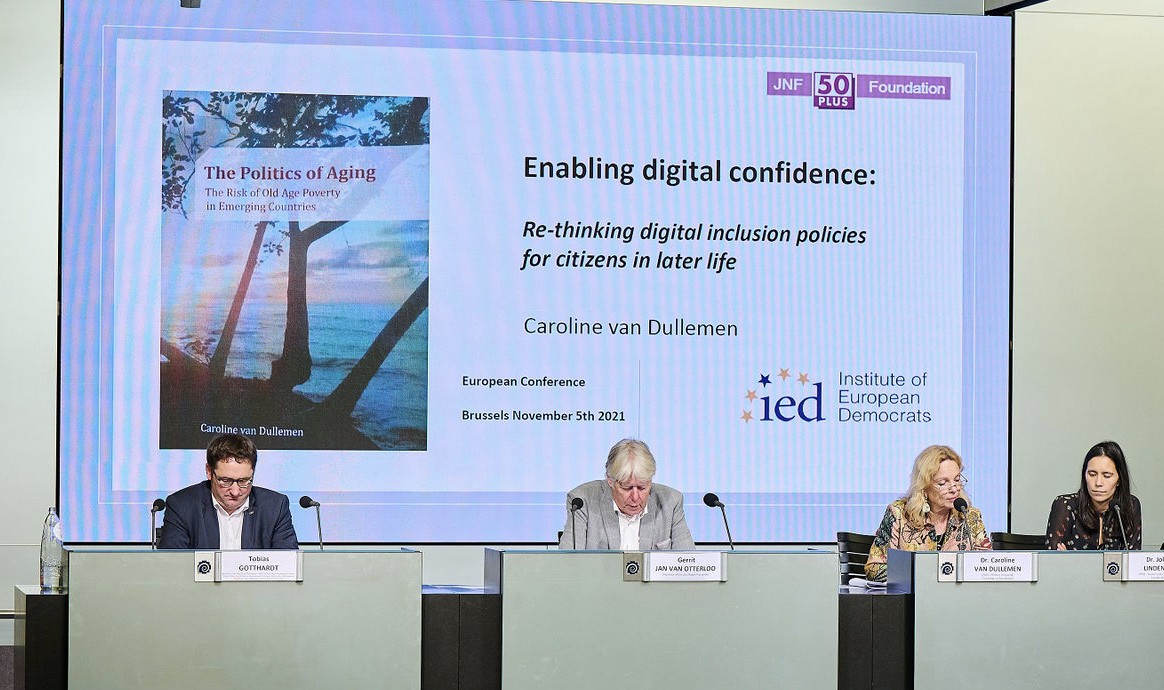
All EU countries are dealing with an aging society and more and more the negative sentiments towards senior citizens are gaining momentum in our society.
The corona crisis has made us live in a digital society more than ever in the last year and, although for our own safety, a ‘new normal’ has emerged.
The lives of senior citizens are influenced by an incremental digitization. Information, handling and keeping pace with the multiple changes is a challenge.
Where people lack user skills, are digital and media illiterate they stand at the back of the line in getting jobs, finding a suitable and payable home, get into financial problems, etc. They need to learn, to create, to participate and to be safe online. Having basic digital skills is essential in our knowledge society.
What when you’re unable to participate in social and political life?
Will segregation in society grow because of the lack of digital skills, generation differences, accessibility to hardware and internet connection, poverty, people with learning difficulties?
What are the effects of these developments for democracy?
- Opening: Francesco Rutelli (IED President)
- Dr. Caroline van Dullemen (PhD – Politics of ageing) University of Amsterdam
- Dr. Jolanda Lindenberg (PhD – Social Cultural Anthropologist) Leyden Academy
- Ittay Mannheim (PhD Candidate in the Euro Ageism Innovative Training Network, Eindhoven, The Netherlands
- Tobias Gotthardt, Member of the Bavarian Parliament, FREIE WÄHLER (Independent Voters), Chair of the Committee on Federal and European Affairs and Interregional Relations, Vice-chairman Commission for education
- Moderation: Gerrit Jan Van Otterloo, Chairman of the Jan Nagel Foundation
